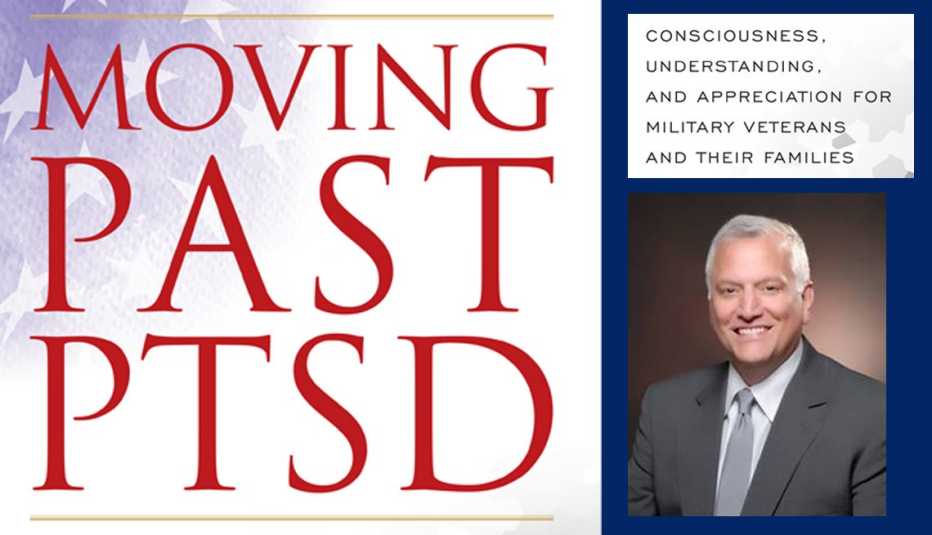Staying Fit


When service members return from the line of duty, some find that their brain remains in the war zone, making it difficult to assimilate into the home, community and society. Up until 1980 this experience was called combat fatigue or being shell- shocked; today it is known as post-traumatic stress disorder (PTSD).
“The member comes home and the family also has PTSD,” says Jaime Parent, an author and retired Air Force lieutenant colonel. “Not that they have it the same way as the veteran does. But they are experiencing their loved one who is going through a crisis.”


AARP Membership— $12 for your first year when you sign up for Automatic Renewal
Get instant access to members-only products and hundreds of discounts, a free second membership, and a subscription to AARP the Magazine.
Parent’s book, Moving Past PTSD: Consciousness, Understanding, and Appreciation for Military Veterans and Their Families, contextualizes PTSD, documents veteran experiences and provides success stories of those who have overcome the disorder.
“A lot of the veterans were telling me that their trip overseas on deployment was easier than actually coming back home,” he says.
Parent hopes that by describing a variety of veteran experiences, his book will give the public a greater understanding and cut through biases and misconceptions that, he says, “exist on both sides.”
“Now that we call it PTSD, we understand it a little better,” Parent says.
This condition exists not only in veterans who have freshly returned from deployment but also in those well after their wartime experience —through nightmares or by encountering feelings experienced during war.
Fifteen percent of Vietnam veterans were diagnosed with PTSD at the time of the most recent study, in the late 1980s, and an estimated 30 percent of those who served in Vietnam have been afflicted, according to the “National Vietnam Veterans Readjustment Study.”

































































More on Home and Family
Benefits Veterans May Overlook
The VA wants vets to know about loans, caregiving and support beyond health careCaring About Veterans Runs in the Family
Q&A with filmmaker Ben Patton, grandson of George Patton Jr., on how he helps vets deal with PTSD